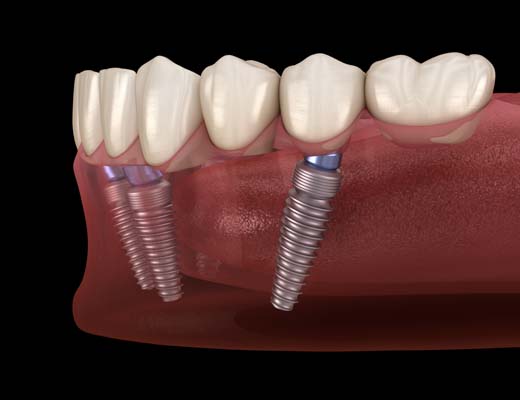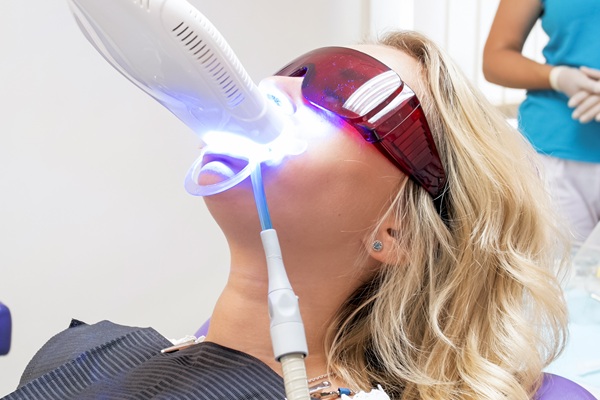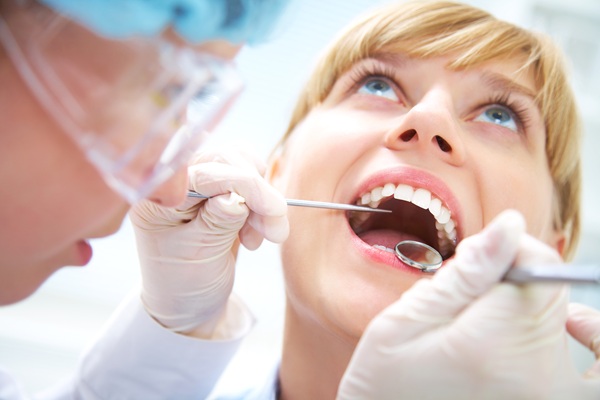What Can You Eat After Getting All-on-4 Implants?

All-on-4® is one of the many types of dental implants available. It involves the use of four specially-placed implants to support a full-mouth tooth prosthetics. After the procedure, patients often wonder what foods they can eat, especially since every step can affect recovery.
Guidelines for eating and drinking
In the next few days or weeks after the procedure, patients need to take proper precautions regarding their diet. They need to watch what they eat after getting All-on-4 implants during the first two weeks and about three months after implant placement.
Food choices during the recovery period are something to consider. Selecting the right type of food can help minimize pain or swelling. It can also help accelerate the recovery process so patients can get back to their routine. Those with preexisting dietary requirements need to consult their dietician before making adjustments to their diet.
What to eat
In the first two weeks after the treatment, patients will remain on a liquid diet. The jaw, mouth and tongue will be sore throughout this period. Although the pain or swelling may have reduced at this time, eating may still be somewhat challenging. A liquid diet will not involve chewing so as to ease the pressure on the mouth. In the first two days, cool liquids are preferable over hot or spicy liquids.
Maintaining proper hydration is also crucial. Patients should consume fluids all throughout the day. Hydration is crucial for adequate healing and quick recovery. Proper nutrition is also vital when liquids are the main diet. Patients should drink fluids containing nutrients because proper nutrition is also important for recovery.
One important note is that patients should not use straws for drinking fluids. The sucking action can break the blood clot around the implant site and cause bleeding.
The following is a list of food and drink items that can be consumed after getting All-on-4 implants: water, protein shakes, meal replacement shakes, milk, tea, coffee, frozen yogurt, smoothies, coconut water, broth, fruit juices, milkshake, ice cream, custard and vegetable or cream soup.
When making protein shakes or smoothies, the texture should be light. Chunky smoothies can make sipping difficult. As the days go by, patients will be able to tolerate thicker and heavier shakes.
In the second half of the recovery period, usually after about two weeks, the patient can switch to a soft food diet. By this time, the soreness will have diminished, and the jaw will have started healing. Patients can slowly introduce solid foods into their diet. It is still best to avoid food items that are chewy, hard and crunchy. It should be an item that can be eaten with a spoon and needs minimal chewing. Food options include soft tofu, eggs, cheese, hummus, mashed potatoes, oatmeal, soft bread, polenta and quinoa.
In conclusion
During recovery, you can use a blender to get the correct food consistency. Proper nutrition is important for healing and recovery after getting All-on-4. Focus on eating healthy foods as well.
Request an appointment here: https://bloomfield.ismiledentalcarenj.com or call iSmile Dental Care of Bloomfield at (862) 702-5234 for an appointment in our Bloomfield office.
Check out what others are saying about our dental services on Yelp: All-on-4 Dental Implants in Bloomfield, NJ.
Recent Posts
All-on-4® dental implants are a popular teeth replacement option for a number of reasons. But how do you know if All-on-4 is right for you? Of course, the best person to ask is a dentist. However, if you are considering this option, here is an overview of what you can expect from All-on-4.All-on-4 replaces a…
For those struggling with excessive tooth loss or loose-fitting dentures, the All-on-4® treatment method can provide a speedy and long-lasting solution. The procedure involves attaching dentures to a set of strategically placed implants for increased security and stability. In addition, this approach offers a host of other benefits for patients with missing teeth.While crowns and…
All-on-4 dental implants are currently taking the dental field by storm. These devices address periodontal diseases or tooth loss. They are supported by four dental implants, which gives the name of All-on-4.Dental implants have been revolutionizing the face of the dental industry over the last 25 years. Implants are small posts that replace the tooth’s…
If you are missing at least one or more teeth, you may qualify as a candidate for dental implants. Dental implants are the best option for replacing missing teeth. Having missing teeth can harm your oral health, and untreated tooth loss can interrupt your chewing ability and even affect the structure of your mouth. If…


